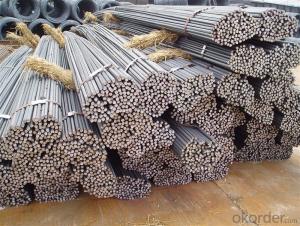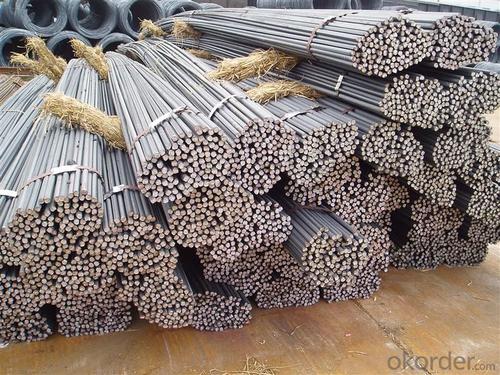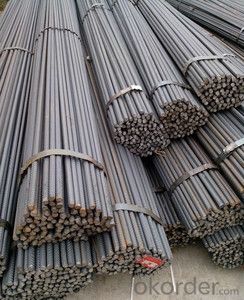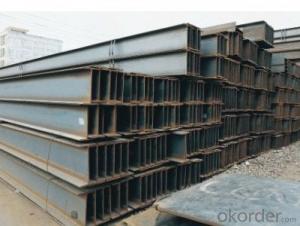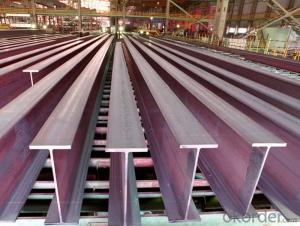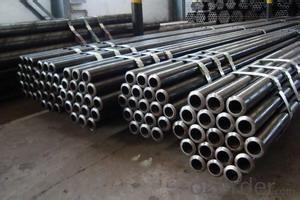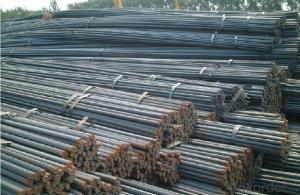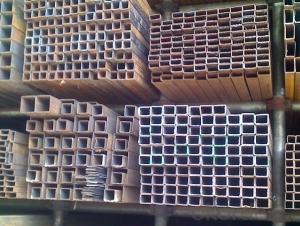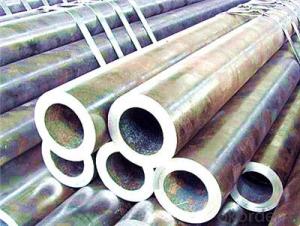Maanshan Steel Pipe Made in China on Sale
- Loading Port:
- Tianjin
- Payment Terms:
- TT OR LC
- Min Order Qty:
- 100 PCS
- Supply Capability:
- 1000 PCS/month
OKorder Service Pledge
OKorder Financial Service
You Might Also Like
1.Packaging & Delivery
Packaging Detail: | Part Name:Malleable Cast Iron Pipe Fitting Brand Name:Fengyuan Malleable Cast Iron Pipe Fitting Model No.:Fyzz0030 QTY Of Each Carton: 65 Pieces (According To The Weight and Volume Of Many Kinds Of Products)Weight:28KG (Various Types May Get Different Weights) Size:68*48*30mm CBM:0.1Stere Per Carton H.S Code:8708949090 (Various Parts Get Different Codes) Parts Or Not:Spare Parts Container Information:40 Or 20 Inch Container (According To The Require Of Customer) Pallet Or Not:All Parts Pallet-Load According |
Delivery Detail: | For Samples:7-10Days;For Mass Production:10-20 Days |
2.Specifications
malleable cast iron pipe fitting
1.casting part
2.malleable cast iron pipe fitting
3.annual casting 550000MT
4.ISO9001:2008
3.Product information:
Brand Name | Malleable Cast Iron Pipe Fitting |
Material | Standard material according to technical drawing, like Stainless steel, Alloy steel, Carbon steel, Aluminum etc |
Material Standard | We could produce as your requirements |
Quality control | ISO9001:2008 control |
QC System | 100% inspection before shipment |
Applied Software for Specification drawings | JPEG, PDF, CAD, IGS Accepted |
Precision machining | CNC machining, milling machine, drilling machine, numerical lathe, all types of lathe |
Payment Terms | L/C,D/A,D/P,T/T,Western Union,MoneyGram.Various options to make payment more convenient |
Surface Treatment | polishing, sand blasting, heat treatment, painting, powder coating, anodizing,electroplating, mirror polishing |
Our services | CNC Machining, Turning, Milling, Stamping, Casting, finish,packing. |
Application | Valves, auto parts, motorcycle parts, metal products for daily use, plumbing pipe fittings |
Product's Design And Products Assembly | As per client's drawing or sample , besides we are also experienced in products assembly. |
Competitive advantage | 1. Small quantity order acceptable. 2. Very tight tolerance. 3. Advanced equipment, excellent R&D teams 4. Strict quality control system. 5. Professional technics and rich experience 6. Packaging details as client required |
Main Products | machining parts, stamping parts,casting parts |
R&D | We have professional engineers and technical workers who are specialized in developing new products . Professional tooling development & process & design,At least 60 kinds of new parts are developed according to customer's drawings each year. |
Customized Service | Able to produce according to specification with technical drawing .Also, we can design for you |
4.Malleable Cast Iron Pipe Fitting Equipment display:
Process Facilities | Quantity |
CNC Machine | 15sets |
Lathe Machine | 5 sets |
Instrument lathe | 28 sets |
Centerless Grinding Machine | 1 set |
Surface Grinding Machine | 2 sets |
Drilling Machine | 3 sets |
Milling Machine | 3 sets |
Drilling And Milling Machine | 2 sets |
Tapping Machine | 14 sets |
Punching Machine | 10 sets |
Four Column Hydraulic Press | 1 set |
Digital Electronic Ac Arc Welder | 2 sets |
Hanging Type Cleaning Machine | 1 set |
Horizontal cold chamber die casting machine | 2 sets |
Aluminum alloy die casting machine | 5 sets |
5.Malleable Cast Iron Pipe Fitting Testing Equipments:
equipment | Quantity |
Micrometer | 1 set |
Height gage | 1 set |
Two meters vernier caliper | 1 set |
General gage | 100 sets |
Two dimensional imaging instrument | 1 set |
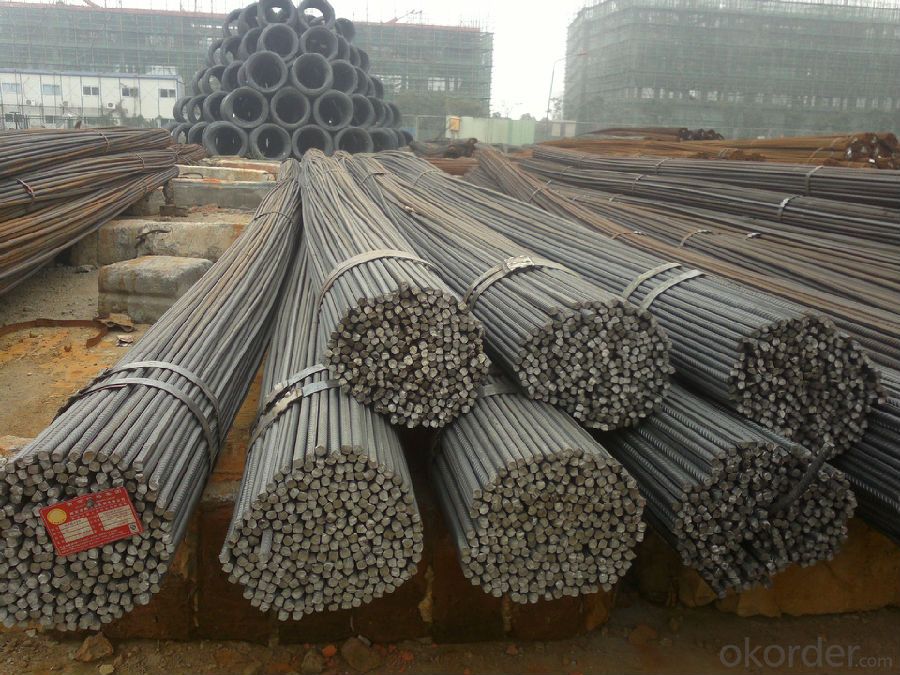
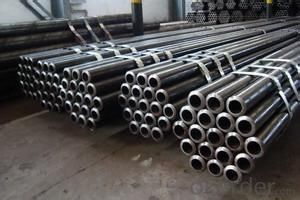
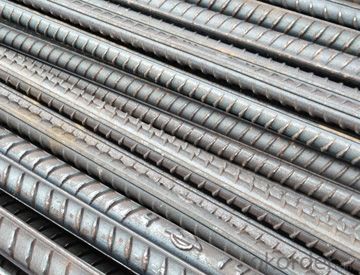
- Q: What are the different methods of pipe cutting for steel pipes?
- There are several methods of cutting steel pipes including manual methods such as hacksaw cutting and abrasive cutting, as well as more advanced methods like plasma cutting, laser cutting, and water jet cutting. Each method has its own advantages and is selected based on the specific requirements of the project.
- Q: Can steel pipes be threaded?
- Yes, steel pipes can be threaded.
- Q: What is the role of steel pipes in the construction of stadiums?
- Steel pipes play a crucial role in the construction of stadiums as they are used for various purposes including structural support, drainage systems, and the installation of utilities such as water, gas, and electrical lines. These pipes provide the necessary strength and durability to support the weight of the stadium's roof, seating areas, and other infrastructure. Additionally, steel pipes enable efficient transportation of liquids and gases, ensuring proper functioning of the stadium's facilities.
- Q: What is the difference between steel pipes and PVC-O pipes?
- Steel pipes and PVC-O pipes differ in their composition, strength, and durability. Steel pipes are made from a combination of iron and carbon, making them extremely strong and resistant to high-pressure applications. However, they are susceptible to corrosion and may require regular maintenance. On the other hand, PVC-O pipes are made from a specialized form of polyvinyl chloride, which enhances their strength and durability while being corrosion-resistant. PVC-O pipes are also lighter, easier to install, and have a longer lifespan compared to steel pipes. Overall, while steel pipes excel in strength, PVC-O pipes offer a more cost-effective and durable solution for various plumbing and industrial applications.
- Q: What are the different types of joints used with steel pipes?
- Steel pipes commonly use several types of joints, depending on the specific application and requirements. Some of the most frequently used types are as follows: 1. Butt Joint: This type of joint is the most basic, involving the alignment and welding of two pipes at their ends. It creates a strong and continuous connection, but reinforcement may be necessary depending on the pipe's size and pressure rating. 2. Socket Weld Joint: Smaller diameter pipes often utilize this joint, where one pipe is inserted into the socket of another and then welded together. It provides good strength and resistance against leaks. 3. Threaded Joint: A threaded joint involves screwing together two pipes with threaded ends. It is commonly used in low-pressure applications and necessitates the use of pipe threads and sealants for a tight and leak-free connection. 4. Flanged Joint: In high-pressure applications, a flanged joint connects two pipes by bolting together flanges at their ends. This type of joint allows for easy disconnection and maintenance. 5. Grooved Joint: A grooved coupling is placed around the ends of two pipes in a grooved joint, which is then secured with bolts. This joint is commonly used in fire protection systems due to its quick installation and easy maintenance. 6. Welded Joint: A welded joint involves fusing two pipes together using various welding techniques like GTAW or GMAW. It provides a strong and permanent connection but requires skilled labor and additional equipment. Each type of joint has its own advantages and limitations, and the selection depends on factors such as pipe size, pressure rating, application, and installation requirements. Choosing the appropriate joint is crucial to ensure the integrity and reliability of the steel pipe system.
- Q: What are the different methods of coating steel pipes for insulation?
- There are several methods of coating steel pipes for insulation, each with its own advantages and disadvantages. 1. Thermal Insulation Coating: This method involves applying a layer of thermal insulation material, such as mineral wool or foam, onto the steel pipe. The insulation material helps to reduce heat transfer and minimize energy loss. Thermal insulation coatings are relatively easy to apply and can provide excellent insulation properties. However, they may be prone to degradation over time and may require regular maintenance and replacement. 2. Corrosion Protection Coating: Steel pipes are often coated with corrosion protection materials, such as epoxy or polyethylene, to prevent rust and corrosion. These coatings act as a barrier between the steel surface and the surrounding environment, protecting the pipe from moisture, chemicals, and other corrosive elements. Corrosion protection coatings are typically durable and long-lasting, providing effective protection for the steel pipe. However, they may not provide significant thermal insulation properties. 3. Fusion-Bonded Epoxy (FBE) Coating: FBE coating is a popular method for both insulation and corrosion protection. It involves applying a layer of epoxy powder to the steel pipe and then heating it to create a strong, durable bond. FBE coatings provide excellent adhesion and resistance to corrosion, as well as some thermal insulation properties. They are commonly used in oil and gas pipelines and can withstand high temperatures and harsh environments. 4. Polyurethane Foam Coating: Polyurethane foam is often used as an insulation coating for steel pipes. It is applied by spraying or injecting the foam onto the pipe surface, which then expands and hardens to create a protective layer. Polyurethane foam coatings provide excellent thermal insulation properties and can be applied to pipes of various sizes and shapes. However, they may require special equipment and expertise for application and may be susceptible to physical damage or moisture absorption if not properly sealed. 5. Ceramic Coating: Ceramic coatings are another option for insulating steel pipes. These coatings are typically applied using a thermal spray process, which creates a layer of ceramic material on the pipe surface. Ceramic coatings can provide high-temperature insulation, corrosion resistance, and thermal shock protection. They are commonly used in industries such as power generation and aerospace, where extreme temperature conditions are present. However, ceramic coatings can be expensive and may require specialized equipment and expertise for application.
- Q: How are steel pipes used in the manufacturing of food processing machinery and equipment?
- Due to their numerous advantageous properties, steel pipes are essential in the manufacturing of food processing machinery and equipment. They are widely used in the food industry for their durability, ability to withstand high temperatures and pressures, and resistance to corrosion. The primary use of steel pipes in food processing machinery is for transporting fluids and gases. These pipes are responsible for carrying water, steam, liquids, air, and gases throughout the processing plant. By utilizing steel pipes, the food industry can ensure the reliable and hygienic transfer of these substances, maintaining the quality and safety of food products. Steel pipes also play a crucial role in the design and construction of food processing equipment such as mixers, blenders, conveyors, and canning machines. These machines require pipes to facilitate the movement of ingredients, processing fluids, and cleaning agents. Steel pipes, with their high strength, can handle the heavy loads and pressures associated with food processing operations, making them an ideal choice for such applications. Another significant benefit of steel pipes in food processing machinery is their resistance to corrosion. With the use of various acidic and alkaline substances, as well as hot water and steam, corrosion can occur in other materials. However, steel pipes, especially those made from stainless steel, exhibit a high resistance to corrosion. This ensures that the machinery remains in optimal condition, prolonging its lifespan. Furthermore, the smooth internal surface of steel pipes allows for efficient and hygienic cleaning. This minimizes the accumulation of food particles and contaminants, which is crucial in the food industry. By maintaining high levels of cleanliness, the growth of bacteria can be prevented, ensuring food safety. In conclusion, steel pipes are indispensable in the manufacturing of food processing machinery and equipment. Their durability, resistance to corrosion, ability to handle high temperatures and pressures, and hygienic characteristics make them the ideal choice for transporting fluids and gases, as well as constructing various food processing equipment.
- Q: What is the difference between steel pipes and cast iron pipes?
- The main difference between steel pipes and cast iron pipes is the material they are made of. Steel pipes are made from an alloy of iron and carbon, making them stronger and more durable. On the other hand, cast iron pipes are made solely from iron, which makes them more brittle and prone to cracks. Additionally, steel pipes have a smoother interior surface, allowing for better water flow and reducing the chance of clogs. Cast iron pipes, on the other hand, have a rougher interior surface and are more susceptible to corrosion. Overall, steel pipes are typically preferred for their strength and longevity, while cast iron pipes may be used in specific applications where their unique properties are advantageous.
- Q: Can steel pipes be used for nuclear power plants?
- Yes, steel pipes can be used for nuclear power plants. Steel pipes are commonly used for various applications in nuclear power plants, such as transporting coolant, steam, and other fluids. They are selected based on their ability to withstand high temperatures, pressures, and corrosive environments. However, specific requirements and regulations related to nuclear safety and radiation protection must be strictly followed during the design, fabrication, and installation of steel pipes in nuclear power plants.
- Q: How are steel pipes used in the construction of water treatment plants?
- Due to their numerous advantages and suitability for this specific application, steel pipes find wide usage in the construction of water treatment plants. They serve various purposes to ensure the effective and dependable operation of these facilities. To begin with, steel pipes are commonly employed for transporting water from its source to the treatment plant. With their high durability and ability to withstand high pressure, they ensure the secure and safe delivery of water over long distances. Moreover, their resistance to corrosion is crucial in preventing any contamination of the water supply. Within the treatment plant, steel pipes are utilized in the distribution system to convey water to different treatment processes. Typically laid underground or integrated into the facility's infrastructure, they facilitate a seamless flow of water between different treatment units. Due to their exceptional strength and structural integrity, steel pipes are highly suitable for this purpose. Furthermore, steel pipes are utilized in the construction of various water treatment equipment. For example, they are incorporated into the construction of sedimentation tanks, where water is allowed to settle while impurities are removed. Similarly, steel pipes are used in the construction of filtration systems, where water passes through different layers of filters to eliminate contaminants. Another significant application of steel pipes in water treatment plants is their use in the construction of pumping stations. These stations are responsible for maintaining a steady water flow throughout the treatment process. To ensure efficient water movement between different treatment stages, steel pipes are employed in the design and construction of the pumping systems. To summarize, steel pipes play a critical role in the construction of water treatment plants. They are utilized for water transportation, distribution within the facility, construction of treatment equipment, and in the design of pumping stations. Their durability, resistance to corrosion, and exceptional strength make them an ideal choice for this essential infrastructure.
Send your message to us
Maanshan Steel Pipe Made in China on Sale
- Loading Port:
- Tianjin
- Payment Terms:
- TT OR LC
- Min Order Qty:
- 100 PCS
- Supply Capability:
- 1000 PCS/month
OKorder Service Pledge
OKorder Financial Service
Similar products
Hot products
Hot Searches
Related keywords
